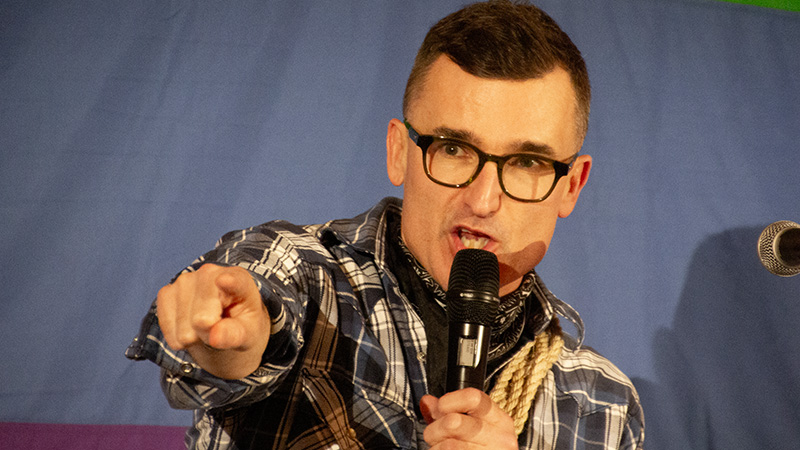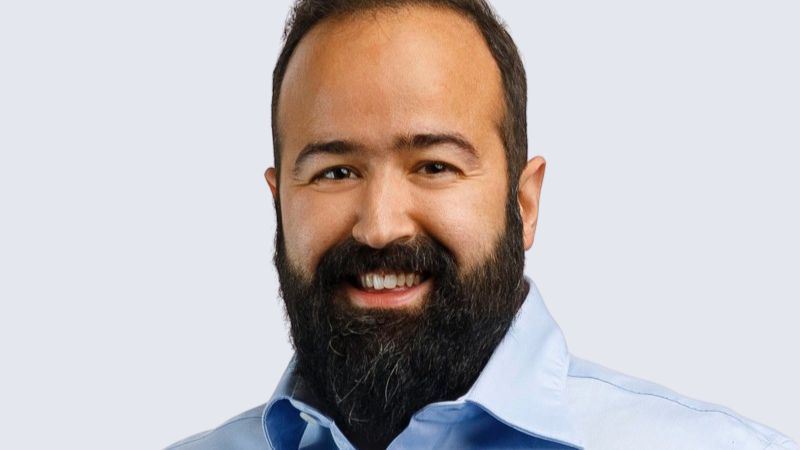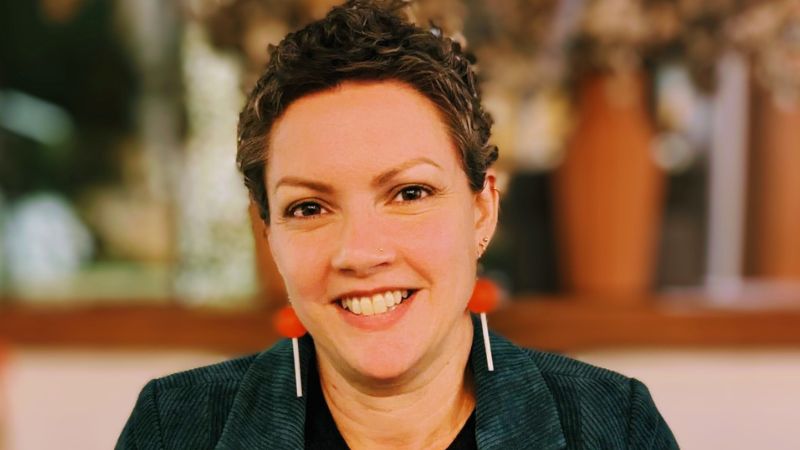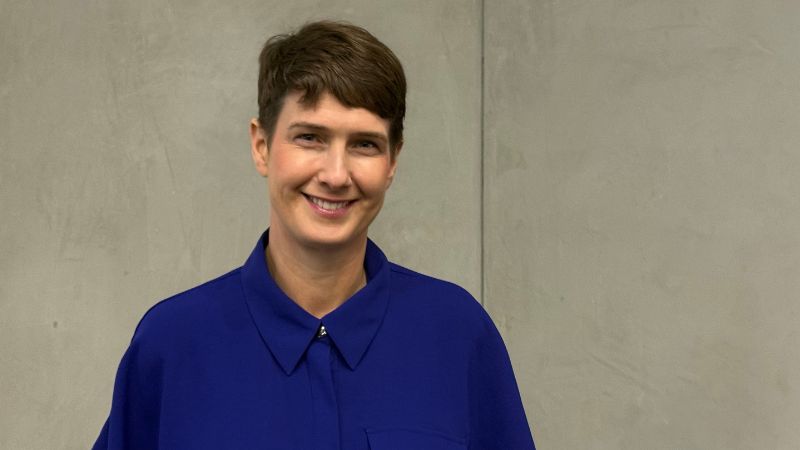John Carey, Western Australia’s minister for Planning and Lands, Housing and Works, and Health Infrastructure, used used to get a lot of feedback about his job performance, but last week when he posted to social media about his excitement about a PrideFEST picnic event he was eventually forced to take down the post due to the overwhelming level of vitriolic comments.
Later when the Minister posted a photo of his attendance at the event, where he sponsors a much-loved dog show a commentator accused of bestiality. For Carey it became a moment to take a stand, and call out the rapid rise in online hate speech.
“I posted a notice about the Pride Family Picnic and dog show… and ultimately had to delete it,” he told Perth Now. “The post copped a range of hate, bigotry and cruel taunts — and explicit and foul content.”
Carey said he felt that there was a greater role for social media platforms to play in tackling online abuse.
“It’s very different from political discourse, I don’t mind if someone you know writes on my post that they disagree, or says you’re not doing it right or even makes a judgement about my performance. I cop it,” he said.
“But when it creeps into this just foul, it’s homophobic, it’s just gross. You can’t just remain silent and let these kinds of vile, putrid, unacceptable behaviours just exist. Words matter and the words can push people over the edge.”

When news that Perth would host the 2030 Gay Games broke, it should have been a moment for celebration, after years of hard work a major tourism event was coming to Western Australia, but while there was celebration organisers faced a wave of hateful and abusive comments.
Media outlets, including OUTinPerth, were forced to lock off comments on social media and also report threats of violence to authorities.

Pride WA President Michael Felix confirmed there had been a strong uptick in hateful comments.
“This poses real risks, particularly for transgender people, First Nations people, and people of colour within our community,” Felix said.
While Curtin University public health expert Jonathan Hallett told Perth Now the impact of these negative attitudes were far-reaching and dangerous, driving many LGBTQIA+ people to avoid mainstream healthcare.
“When LGBTIQA+ people avoid healthcare due to discrimination, treatable conditions become crises,” he said. “This isn’t about special treatment, it’s about removing barriers to essential healthcare.”
Prominent football commentator Dani Laidley also shared her experiences of receiving death threats and experiencing violent altercations. Laidley is one of the most prominent people who are transgender in the public eye in Western Australia.

Rainbow Futures WA Chief Executive officer Misty Farquhar said the issue was one of great concern.
“We know anecdotally that gay/bisexual men are being targeted on dating apps and trans women, and other gender diverse people, are being physically assaulted,” Dr Farquhar said.
“This is not new, but it’s on the rise and there is genuine concern within the community about it worsening.”

Concern about the rise in hate speech is a national and international issue
When Anna Brown, CEO of Equality Australia, appeared in Adelaide for the annual Ian Purcell Oration the rising level of online commentary was at the forefront of her mind as well.
As South Australia marked the 50th anniversary of the decriminalisation of homosexuality, a move that was propelled by the violent death of Dr George Duncan, Brown reflected on the changing acceptance of LGBTIQA+ people though the decades.
Brown shared her own experience of growing up in the 1980s and 1990s when there was very little visibility of LGBTIQA+ people.
“For any of us we hid ourselves away, we weren’t open, we hid our relationships, and it wasn’t safe to be out at work or school, or even within your family.” Brown said, noting that hiding your gender and sexuality was still a reality for a lot of young people in Australia.
Equality Australia’s ‘Stand Up To Hate’ campaign has highlighted that Western Australia and South Australia remain the two states that do not have specific laws to protect members of the LGBTIQA+ communities from vilification.
Brown spoke about Australian states like South Australia and Western Australia which don’t have laws protecting LGBTIQA+ people from hate speech, saying it was well past time that laws were updated.
“We got protections on the grounds of race, and they need to be extended not just to LGBTIQ+ people, but also disability and other areas as well.” Brown said, noting that laws against hate speech coupled with laws which identify other crimes as meeting the classification of a ‘hate crime’ were particularly impactful.
“Whether its hate speech, hate crime, hate conduct – it impacts on the individual and their sense of safety, and the sense of safety and dignity for that class of people as a whole.” Brown said.
“Sadly we are seeing hatred against our communities escalate across the country, it’s something I’ve really noticed, sort of post-Covid.” Brown said highlighting a number of violent attacks that have occurred over the last year. Attacks against people who are transgender were particularly prominent.
USA has experienced a dramatic rise in hate crimes and hate speech
In June USA based organisation GLAAD reported that their programs had tracked a dramatic increase in incidents across America.
Between May 1, 2024 and May 1, 2025, the ALERT Desk tracked 932 anti-LGBTQ incidents in 49 US states and the District of Columbia – the equivalent of 2.5 incidents every day.
Fifty-two per cent of all incidents were also specifically targeting transgender and gender non-conforming people. Violent attacks included in this year’s count resulted in 84 injuries and 10 deaths; eight of which involved fatal violence against people of color.
They highlighted that transgender and gender non-conforming people were disproportionately targeted by hate-fueled violence, with the ALERT Desk tracking at least 26 injuries and one death motivated by anti-trans hate specifically. Compared to the previous year, incidents against trans people increased by 14%.
GLAAD note that the rise of anti-transgender violence and rhetoric comes in the wake of a record number of advertisements targeting people who are transgender during the 2024 Presentational election, a growing number of anti-transgender bills in state legislatures, and a wave of executive orders from US President Donald Trump.
Do you need some support?
If you are struggling with anxiety or depression, support and counselling are available from:
QLife: 1800 184 527 / qlife.org.au (Webchat 3pm – midnight)
QLife are a counselling and referral service for LGBTQIA+ people.
DISCHARGED: info@discharged.asn.au / discharged.asn.au
Discharged is a trans-led support service with peer support groups for trans and gender diverse folks.
Lifeline: 13 11 14 / lifeline.org.au
Beyondblue: 1300 22 4636 / www.beyondblue.org.au





